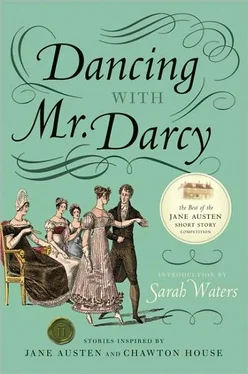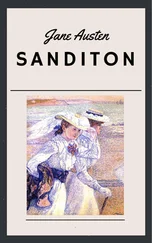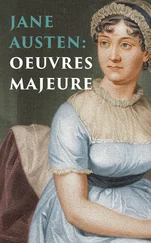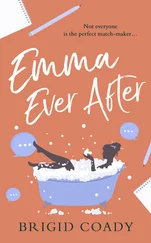‘Hi, Ellie.’
‘Rich,’ she began, ‘I just wanted to say that I love you. And I’m sorry and I just want everything to be okay—’
He said nothing.
‘I love you. I just… wanted you to know.’
‘Ell, I can’t talk about this now.’
‘I know, I know you can’t.’ She felt defensive. Silly.
‘But I have been thinking about stuff and we’ll talk,’ he continued, sounding far away and contained. ‘The problem is, Ellie, your default reaction is always that it’s not good enough. And I can’t live like that. I want to be enough.’
‘You are enough,’ Ellie heard her voice squeak, but even as she spoke the words, she doubted herself.
Back at the bedsit Ellie poured red wine. She had not divulged why she was staying another night and Marianne had not pushed her.
‘It’s funny,’ she remarked, seemingly apropos of her sister’s situation, ‘you meet and fall in love with all these things about a person and then you tussle for two, three years, trying to turn them into something else… to get them to understand what you need or want. And you sort of use each other up. And then, finally, when you both understand each other, it’s like you’re spent. And it’s too late.’
Marianne eyed her sister solemnly.
‘Yes,’ she agreed, ‘it’s like training a dog. And the worst bit is that then someone else – the next person – comes along and benefits from all your hard work.’
There was a pause as they contemplated this unsatisfactory injustice.
‘The only good thing I can think is that it’s cyclical,’ Marianne continued, ‘The next girl Lawrence meets will think he’s wonderful until she becomes his girlfriend and he begins flirting with everything that moves. Then she’ll develop paranoia and turn into me.’
‘What if the next girl can cope with the way he is?’
‘Then she’s right for him and I’m not,’ Marianne replied, in a rare moment of self-awareness. ‘It’s horrific,’ she added, ‘I’m not doing it anymore.’
Ellie laughed. ‘If you’re not doing it anymore then why have you put Dad’s book of love poetry in the bathroom? You’re doing what Dad always told us – to invite love in, to attract it—’
‘No. It’s the opposite. It’s to remind me that love is a construct.’
‘You don’t think love’s a construct.’
‘I do. I’m turning into you.’
‘I don’t think love’s a construct!’
‘Okay, keep your hair on.’
‘No, don’t do that. Don’t put that on me. You don’t know what I think. I do believe in love, I do want to – to – gaze—’ she stopped. It sounded weak on her tongue. Marianne pounced.
‘I saw you’d been looking at that, Dad’s favourite poem—’
‘So?’
‘I saw you’d been reading it.’
‘Well then you’ll agree. It’s about an ideal, something we aspire to. Gazing an eagle blind. Don’t tell me you don’t believe in that because you do, we all do. It messes us up because we want it so badly.’
Marianne smiled, triumphant, ‘You’re wrong, Dad got it wrong. I read the notes at the back. It’s not about that. Eagles were meant to be the only birds that could stare directly at the sun without going blind. It means a lover’s eyes are brighter than the sun and a lover’s ears can hear things that even a thief will miss.’
‘Yes—’
‘Meaning a lover’s senses are more honed – more paranoid – than anyone else’s.’
‘Meaning?’
‘Meaning that as lovers we are doomed to be paranoid freaks. It’s not a happy affirmation of love, it’s a condemnation.’
Ellie looked at Marianne. Why try to melt the barriers she had put in place for her own protection? They would not hold for long. And knowing Lawrence the chapter would not be closed until sufficient melodrama and his desire for what he had now made unobtainable had played out. What Ellie currently needed to believe in, Marianne needed to deny. And Marianne needed more looking after.
‘Either way,’ Ellie began carefully, ‘it seems to be saying that love is something we should immerse ourselves in…that consumes us. In a good way or a bad way.’
‘I was consumed,’ Marianne said, her voice splintering into a bleat as her eyes filled up once more.
‘I know, darling,’ Ellie said quietly and poured more wine.
My inspiration: In Sense and Sensibility there is a moment where Elinor nurses Marianne’s broken heart whilst concealing that she suffers one too. I wanted to explore a modern-day version of Sense and Sensibility where two sisters of opposing temperaments discuss the nature of love. As with Austen’s characters they are eloquent and well read but these present day heroines have professions, are older and live independently. I have aimed to maintain a middle class sensibility and lifestyle. I realise the authorial voice I use can be quite telling but was hoping to emulate Austen in this style.
The Jane Austen Hen Weekend
Clair Humphries
It began with a blocked loo.
‘How?’ I asked, staring as the sinister-looking stream of water oozed out from under the bathroom door.
‘How do you think?’ Anna glared at Lucy. ‘Someone’s toilet-bothering brat stuffed too much paper down there, didn’t they?’
‘That’s not fair!’ Lucy clutched a gloved hand dramatically to her ample chest. Her Empireline frock was doing its best to withstand her womanly curves, but I could see why Keira Knightley proved such a popular choice for costume drama casting directors. Anything above a C cup was perilous and clearly put the stitching under intolerable strain.
‘It bloody is fair. You and Oscar have been locked in there for an hour.’
‘He’s not well, I told you. He can’t help that—’
‘Why bring him then? Couldn’t your mum look after him or something?’
‘Oh, I can tell you don’t have kids! What am I supposed to do – he’s been up all night with the runs, crying his eyes out. I can’t just abandon him for the weekend!’
‘Um, could you try not to swear please, Anna?’ Rachel interrupted, looking up from her well-thumbed guide book. ‘Genteel ladies of the Regency period wouldn’t use that kind of language. And ‘toilet-bothering’ doesn’t really make sense. One’s ‘toilet’ usually referred to getting dressed, or powdering your nose, that sort of thing—’
We all looked at Rachel; now wasn’t the best time for a lecture on early nineteenth century linguistics. Water was spreading rapidly across the flag stoned floor, accompanied by a distinctly whiffy odour. Wisely, Anna chose to ignore her and pressed on.
‘Dragging your child down here with the squits is hardly fair on us either, is it? Now the loo’s out of action and we’ve probably all been infected with whatever vile bug he’s carrying.’
‘What was I supposed to do? Stay at home while you all have a lovely time as usual? Well, I’m sick of it!’ Lucy’s lip began to wobble. ‘I haven’t been anywhere for ages – mums never get the chance to dress up and play. I just wanted some fun for a change.’
‘Fun?’ Anna waved her fan accusingly in my direction. ‘Remind me, will you – how exactly is this meant to be fun? I’m freezing in this stupid dress, there’s no pub for miles around and my favourite shoes are about to be written off by raw sewage!’
She had a point. The toilet overflow was gathering momentum and, squealing like the girls that we were, we hurried back down the corridor, escaping the pool of evil-smelling goo. Not the ideal beginning to a Jane Austen-themed hen weekend, I had to admit. And, yes, maybe I should take some of the blame – it was my idea. I’d booked the venue, hired the costumes and (with the help of my year three class) cobbled together the props, determined everything would be perfect for my best friend Rachel: romantic novelist and bride-to-be, who was marrying her own real life Mr Darcy next Saturday. The premise was simple enough. Four friends, two days and one country house. So far, so civilised. What, dear reader, could go wrong?
Читать дальше












